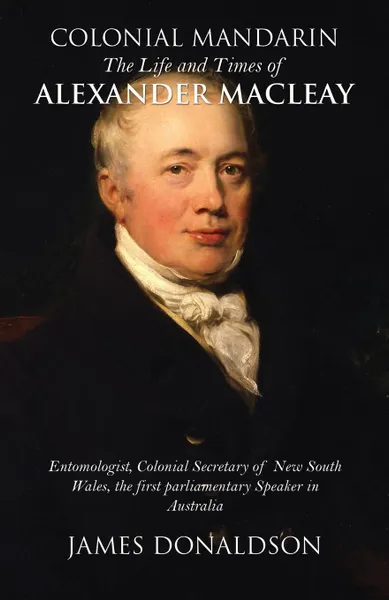Colonial Mandarin. The Life and Times of Alexander Macleay 12+
📙 The Scot, Alexander Macleay (1767-1848), was an entomologist and notable political figure in the nineteenth-century pioneer days of Sydney, Australia. Criticised for his salary, his free house and the large land grants he received, he was also ridiculed for his stature and his fat legs, that he survived this crude sniping until his retirement in 1846 is testament to his endurance and indefatigable nature. Macleay won through to become a major administrative, scientific, cultural and philanthropic contributor in the developing colony of New South Wales. James Donaldson's Colonial Mandarin: The Life and Times of Alexander Macleay draws from many sources including the Linnean Society of London for which he served as Secretary and the journals, political writings and newspapers of Sydney. Donaldson paints a strong portrait of a man who became Colonial Secretary for New South Wales in 1825 and whose scientific curiosity made his insect collection one of the most extensive in the world. With those of his son, William Sharp Macleay and nephew, Sir William (John) Macleay it is preserved in the University of Sydney's Macleay Museum.
Мнения
